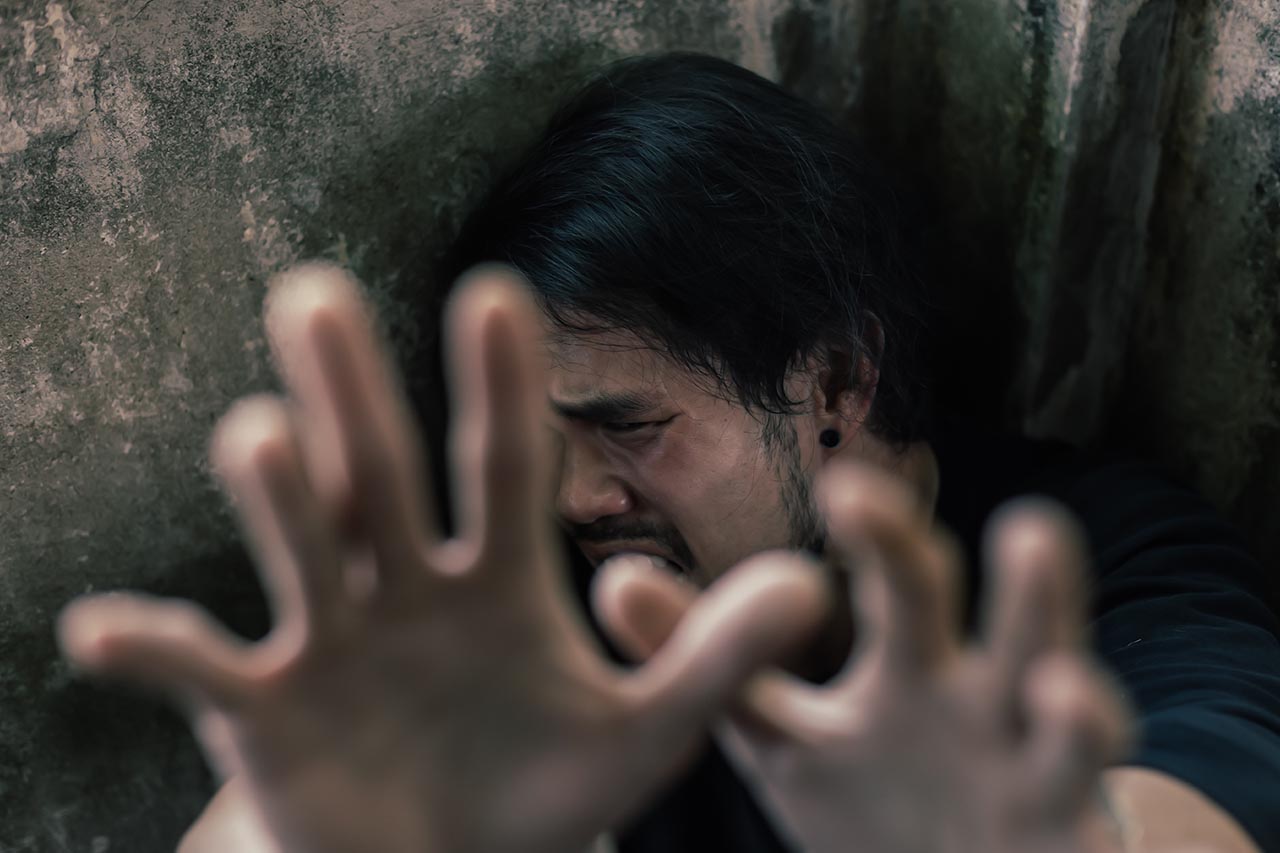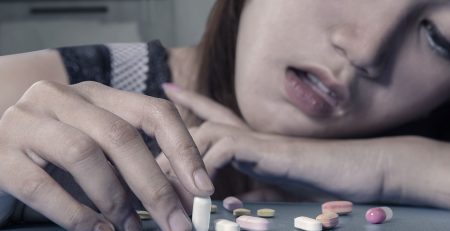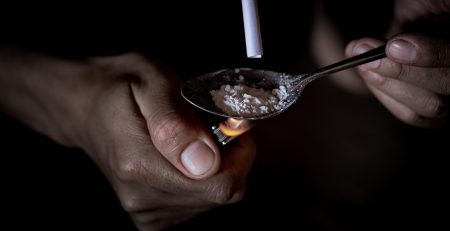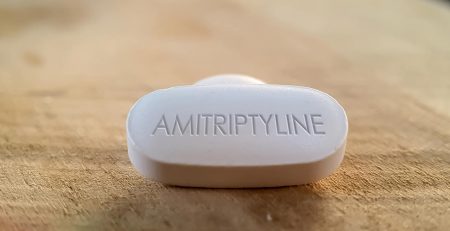Heroin is a powerful opioid that is derived from the opium poppy plant. The euphoric effect that comes from ingesting heroin, typically through snorting or smoking, triggers many people into forming an addiction. The dangers of heroin are not limited to itching, nausea, and slow heart rate. Under certain conditions, heroin hallucinations may occur, especially if a person mixes the drug with or uses it alongside other substances. The drug experts at our drug rehab in Palm Beach County share more on the prevalence and side effects of heroin psychosis and hallucinations below.
Does Heroin Cause Hallucinations?
Yes, heroin can make you hallucinate. In a case study of psychotic symptoms from opioids, including heroin, individuals were tested to determine the level of hallucinations some may experience.1 The report stated that symptoms were fluctuating and inconsistent throughout the day.
The study noted that one patient reported feeling insects crawling on his body, causing an itching sensation. Additional auditory, visual, and olfactory (relating to a sense of smell) hallucinations were also reported.
Another small study of cancer patients on morphine found that around 5% experienced some kind of hallucination while on the drug. Fentanyl, another opioid that is far more potent than heroin, has a hallucination rate estimated at around 6%.2
Heroin hallucinations seem to depend on a variety of factors that are still being researched. The exact frequency of this phenomenon is unknown and likely underreported.
What’s more, typical opioid withdrawal symptoms consist of anxiety, diarrhea, insomnia, and sweating. It is less common for individuals to suffer hallucinations, but, depending on particular factors, this effect does occur.
Can Heroin Withdrawal Cause Hallucinations?
Yes, heroin withdrawal can lead to a variety of physical and psychological symptoms, and hallucinations are among the potential psychological manifestations. Heroin withdrawal symptoms typically begin within hours to a day after the last dose and can persist for several days.
Hallucinations during heroin withdrawal are generally a result of the overall distress and psychological distress experienced during this period. These hallucinations are often classified as “substance-induced psychotic disorder” or, in this case, “heroin-induced psychosis.”
The hallucinations observed during heroin detox are typically visual or tactile and can be quite distressing. They are more likely to occur in individuals with a history of heavy and prolonged heroin use. Other withdrawal symptoms, such as anxiety, agitation, insomnia, and cravings for the drug, can also contribute to overall psychological distress.
It’s important to note that the severity of withdrawal symptoms can vary from person to person and may depend on factors like the individual’s history of heroin use and their overall physical and mental health. Given the potential for hallucinations and the general discomfort of heroin withdrawal, it is advisable for individuals attempting to quit heroin to seek medical assistance and support to manage the process safely and effectively. Medical professionals can provide medications and psychological support to alleviate withdrawal symptoms and reduce the risk of hallucinations and other complications.
Causes of Heroin Hallucinations
Everyone is different, so the effects of drugs can vary drastically from person to person. Because heroin hallucinations do not occur that often, studies on the causes of heroin-induced psychosis are not conclusive.
There are several reasons that people experience heroin hallucinations, including brain changes, insomnia, and underlying mental health problems. Of course, mixing drugs and psychostimulants can be dangerous and add to the serious adverse heroin effects, especially when these drugs are being abused.
Another probable cause of hallucinating on heroin is a change in the brain, especially those concerning dopamine, a neurotransmitter associated with feelings of happiness and the brain’s reward system. Over time, heroin abuse can lead to the overactivation of dopamine pathways in the brain that are believed to be connected to hallucinations.
Additional causes of heroin hallucinations include:
- Impurities and contaminants: Street heroin often contains impurities or contaminants, such as other drugs or substances, which can lead to unexpected effects, including hallucinations.
- Comorbid conditions: Individuals who use heroin may have underlying mental health conditions, such as schizophrenia or bipolar disorder, which can make them more susceptible to hallucinations when using the drug.
- High doses: Taking high doses of heroin or using the drug frequently can induce a state of delirium, which may include hallucinations, though this is more characteristic of opioid overdose.
- Withdrawal symptoms: During heroin withdrawal, some individuals may experience vivid dreams, which can be mistaken for hallucinations.
Suffering from acute or chronic sleep deprivation contributes to heroin hallucinations. In one study, after 24 hours without sleep, 43% of students experienced perceptual changes like hallucinations, and after 60 hours without sleep, this number rose to 100%.3 Now add heroin to the mix, and you may think a person has lost their sanity, and for good reason.
Do You Hallucinate on Heroin?
Heroin may not cause hallucinations but instead exacerbates underlying health problems that make people predisposed to hallucinations. Hallucinations are a common symptom for people with schizophrenia, Parkinson’s disease, dementia, and Charles Bonnet syndrome. Because of the harmful nature of drug abuse, prolonged heroin use may make these health problems worse and lead to the development of hallucinations as well as mental illness.
For this reason, individuals experiencing both heroin addiction and a mental health disorder should seek treatment for both issues. Our dual diagnosis treatment center in Florida offers evidence-based care led by a team with decades of experience in the field.
Heroin Addiction Treatment in Palm Beach County
Whether or not an individual is currently encountering heroin-induced hallucinations, it is imperative to recognize that heroin is a dangerous substance with serious health implications. Those struggling with heroin abuse should promptly seek professional care to mitigate potential harm.
If you or a loved one is battling addiction, you do not need to go through the withdrawal process alone. Our team of licensed professionals will guide you on the road to recovery. If you are experiencing signs or symptoms, do not hesitate to take action!













